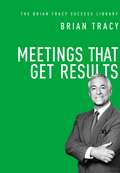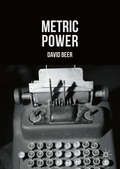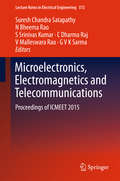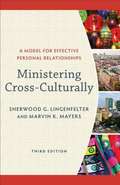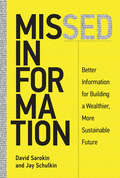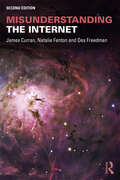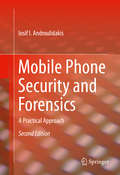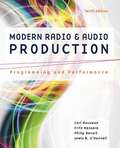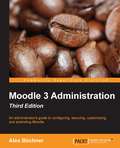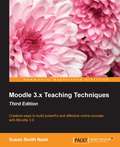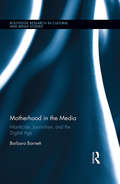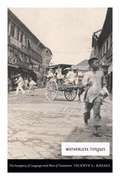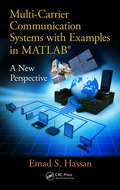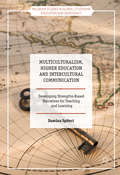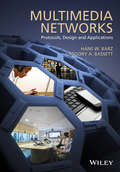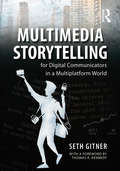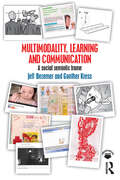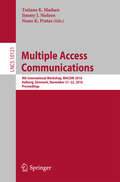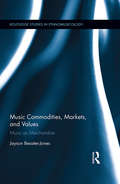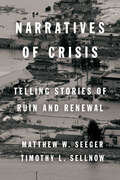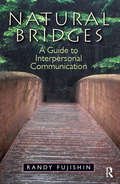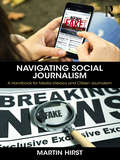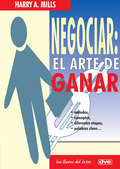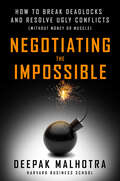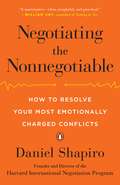- Table View
- List View
Meetings That Get Results (The Brian Tracy Success Library)
by Brian TracyLearn how to make meetings shorter, more effective, and more satisfying to everyone in attendance!In most workplaces today, meetings have become dreaded, meaningless, and at best, a necessary evil. Neither should be acceptable to management. All meetings should be powerful tools for solving problems, making decisions, exchanging ideas, and getting results fast.What is the secret to turning pointless into production? Based on years of experience consulting for companies around the world, Brian Tracy has learned firsthand what works in meetings and what doesn&’t.In Meetings That Get Results, Tracy will help you learn how to:Structure different types of meetingsEstablish meeting prioritiesSet an achievable agendaSummarize discussion points and decisionsGain agreement on action steps, assign responsibility, and set deadlinesMaximize the return on time invested, and much more!When you are leading a meeting, both your superiors and your subordinates are assessing your performance. This invaluable pocket-sized guide reveals simple, proven ideas for managers and other leaders to impress your coworkers with your improved skills.Meetings That Get Results shows you how to use structure, purpose, presentations, and more to make your performances more effective and compelling.
Metric Power
by David BeerThis book examines the powerful and intensifying role that metrics play in ordering and shaping our everyday lives. Focusing upon the interconnections between measurement, circulation and possibility, the author explores the interwoven relations between power and metrics. He draws upon a wide-range of interdisciplinary resources to place these metrics within their broader historical, political and social contexts. More specifically, he illuminates the various ways that metrics implicate our lives - from our work, to our consumption and our leisure, through to our bodily routines and the financial and organisational structures that surround us. Unravelling the power dynamics that underpin and reside within the so-called big data revolution, he develops the central concept of Metric Power along with a set of conceptual resources for thinking critically about the powerful role played by metrics in the social world today.
Microelectronics, Electromagnetics and Telecommunications
by Suresh Chandra Satapathy N Bheema Rao S Srinivas Kumar C Dharma Raj V Malleswara Rao G V K SarmaThis volume contains 73 papers presented at ICMEET 2015:International Conference on Microelectronics, Electromagnetics andTelecommunications. The conference was held during 18 - 19 December, 2015 atDepartment of Electronics and Communication Engineering, GITAM Institute ofTechnology, GITAM University, Visakhapatnam, INDIA. This volume contains papersmainly focused on Antennas, Electromagnetics, Telecommunication Engineering andLow Power VLSI Design.
Ministering Cross-Culturally: A Model for Effective Personal Relationships
by Sherwood G. Lingenfelter Marvin K. MayersWith more than 125,000 copies in print, this model for effective personal relationships in a multicultural and multiethnic world has proven successful for many. <p><p> On the occasion of its thirtieth anniversary, this contemporary classic has been thoroughly updated to reflect Sherwood Lingenfelter's mature thinking on the topic and to communicate with modern readers, helping them minister more effectively to people of different cultural and social backgrounds. It is accessible, practical, and applicable to many ministry situations. An accompanying interactive questionnaire, designed to help students reflect on their own cultural values, is available online through Baker Academic's Textbook eSources.
Missed Information: Better Information for Building a Wealthier, More Sustainable Future
by Jay Schulkin David SarokinHow better information and better access to it improves the quality of our decisions and makes for a more vibrant participatory society. Information is power. It drives commerce, protects nations, and forms the backbone of systems that range from health care to high finance. Yet despite the avalanche of data available in today's information age, neither institutions nor individuals get the information they truly need to make well-informed decisions. Faulty information and sub-optimal decision-making create an imbalance of power that is exaggerated as governments and corporations amass enormous databases on each of us. Who has more power: the government, in possession of uncounted terabytes of data (some of it obtained by cybersnooping), or the ordinary citizen, trying to get in touch with a government agency? In Missed Information, David Sarokin and Jay Schulkin explore information—not information technology, but information itself—as a central part of our lives and institutions. They show that providing better information and better access to it improves the quality of our decisions and makes for a more vibrant participatory society.Sarokin and Schulkin argue that freely flowing information helps systems run more efficiently and that incomplete information does just the opposite. It's easier to comparison shop for microwave ovens than for doctors or hospitals because of information gaps that hinder the entire health-care system. Better information about such social ills as child labor and pollution can help consumers support more sustainable products. The authors examine the opacity of corporate annual reports, the impenetrability of government secrets, and emerging techniques of “information foraging.” The information imbalance of power can be reconfigured, they argue, with greater and more meaningful transparency from government and corporations.
Misunderstanding the Internet (Communication and Society)
by James Curran Des Freedman Natalie FentonThe growth of the internet has been spectacular. There are now more than 3 billion internet users across the globe, some 40 per cent of the world’s population. The internet’s meteoric rise is a phenomenon of enormous significance for the economic, political and social life of contemporary societies. However, much popular and academic writing about the internet continues to take a celebratory view, assuming that the internet’s potential will be realised in essentially positive and transformative ways. This was especially true in the euphoric moment of the mid-1990s, when many commentators wrote about the internet with awe and wonderment. While this moment may be over, its underlying technocentrism – the belief that technology determines outcomes – lingers on and, with it, a failure to understand the internet in its social, economic and political contexts. Misunderstanding the Internet is a short introduction, encompassing the history, sociology, politics and economics of the internet and its impact on society. This expanded and updated second edition is a polemical, sociologically and historically informed guide to the key claims that have been made about the online world. It aims to challenge both popular myths and existing academic orthodoxies that surround the internet.
Mobile Phone Security and Forensics
by Iosif I. AndroulidakisThis new edition provides both theoretical and practical background of security and forensics for mobile phones. The author discusses confidentiality, integrity, and availability threats in mobile telephones to provide background for the rest of the book. Security and secrets of mobile phones are discussed including software and hardware interception, fraud and other malicious techniques used "against" users. The purpose of this book is to raise user awareness in regards to security and privacy threats present in the use of mobile phones while readers will also learn where forensics data reside in the mobile phone and the network and how to conduct a relevant analysis. The information on denial of service attacks has been thoroughly updated for the new edition. Also, a major addition to this edition is a section discussing software defined radio and open source tools for mobile phones.
Modern Radio and Audio Production: Programming and Performance (Tenth Edition)
by Carl Hausman Frank Messere Lewis B. O'Donnell Philip BenoitIntegrating cutting-edge technologies with explanations of traditional equipment and practices, MODERN RADIO AND AUDIO PRODUCTION, 10e, offers current, comprehensive coverage of radio production and programming. A clear writing style, excellent descriptions and explanations, and attention to detail make this book easy to read and understand. An all-new chapter on writing walks you step by step through the entire process, while a new chapter on ethics helps you think through possible ethical dilemmas before you encounter them in the workplace. In addition, an all-new chapter on mobile radio explores the next frontier.
Moodle 2.7 LTS Administration - Third Edition
by Alex BuchnerThe book takes a problem-solution approach to fall in line with your day-to-day operations. This is a one-stop reference for any task you will ever come across when administering a Moodle site of any shape and size. If you are a technician, systems administrator, or part of academic staff, this is the book for you. This book is ideal for anyone who has to administer a Moodle system. Whether you are dealing with a small-scale local Moodle system or a large-scale multi-site Virtual Learning Environment, this book will assist you with any administrative task. Some basic Moodle knowledge is helpful, but not essential.
Moodle 3.x Teaching Techniques - Third Edition
by Susan Smith NashCreative ways to build powerful and effective online courses with Moodle 3.0 About This Book * Unleash your teaching talents and develop exciting, dynamic courses * Put together effective online courses that motivate students from all backgrounds, generations, and learning styles * Find powerful insights into developing more successful and educational courses Who This Book Is For If you want to unleash your teaching talents and develop exciting, dynamic courses that really get students moving forward, then this book is for you. Experienced Moodlers who want to upgrade to Moodle 3.0 will find powerful insights into developing more successful and educational courses. What You Will Learn * Create a dynamic learning environment using different techniques * Motivate your students to collaborate and demonstrate what they are learning and to create projects together * Develop materials you can re-use in your future courses * Create online workshops and galleries for your students to make presentations about what they have learned * Engage your students in team work that helps them connect course content with their experiences and prior learning * Develop high-quality courses that will last to create a personal inventory you can use and re-use In Detail Moodle, the world's most popular, free open-source Learning Management System (LMS) has released several new features and enhancements in its latest 3.0 release. More and more colleges, universities, and training providers are using Moodle, which has helped revolutionize e-learning with its flexible, reusable platform and components. This book brings together step-by-step, easy-to-follow instructions to leverage the full power of Moodle 3 to build highly interactive and engaging courses that run on a wide range of platforms including mobile and cloud. Beginning with developing an effective online course, you will write learning outcomes that align with Bloom's taxonomy and list the kinds of instructional materials that will work given one's goal. You will gradually move on to setting up different types of forums for discussions and incorporating multi-media from cloud-base sources. You will then focus on developing effective timed tests, self-scoring quizzes while organizing the content, building different lessons, and incorporating assessments. Lastly, you will dive into more advanced topics such as creating interactive templates for a full course by focussing on creating each element and create workshops and portfolios which encourage engagement and collaboration Style and approach With clear, step-by-step instructions, this book helps you develop good, solid, dynamic courses that will last by making sure that your instructional design is robust, and that they are built around satisfying learning objectives and course outcomes. Packed with plenty of screenshots and practical examples, you will get solid understanding of developing courses that are a success in the real world.
Motherhood in the Media: Infanticide, Journalism, and the Digital Age (Routledge Research in Cultural and Media Studies)
by Barbara BarnettThis book examines contemporary media stories about women who kill their children. By analyzing media texts, motherhood blogs, and journalistic interviews, the book seeks to understand better maternal violence and the factors that lead women to harm their children. The central thesis of this book is that media practices have changed dramatically during the past 50 years, as has society’s views on "appropriate" feminine behavior, yet definitions of characteristics of good mothers remain largely defined by 1950s sit coms, Victorian ideals, and Christian theology. The book contends that in spite of media saturation in American society, and the media’s increased opportunities to tell complex and nuanced stories, news media narratives continue to situate maternal violence as rare, unfathomable, and unpredictable. The news media’s shift in focus—from public service to profit-making industry—has encouraged superficial coverage of maternal violence as reporters look for stories that sell, not stories that explain. Motherhood blogs, in contrast, offer an opportunity for women to tell their own stories about motherhood, based on experience. Interviews with journalists offer insights into how the structure of their jobs dictates media coverage of this intimate form of violence.
Motherless Tongues: The Insurgency of Language amid Wars of Translation
by Vicente L. RafaelIn Motherless Tongues, Vicente L. Rafael examines the vexed relationship between language and history gleaned from the workings of translation in the Philippines, the United States, and beyond. Moving across a range of colonial and postcolonial settings, he demonstrates translation's agency in the making and understanding of events. These include nationalist efforts to vernacularize politics, U.S. projects to weaponize languages in wartime, and autobiographical attempts by area studies scholars to translate the otherness of their lives amid the Cold War. In all cases, translation is at war with itself, generating divergent effects. It deploys as well as distorts American English in counterinsurgency and colonial education, for example, just as it re-articulates European notions of sovereignty among Filipino revolutionaries in the nineteenth century and spurs the circulation of text messages in a civilian-driven coup in the twenty-first. Along the way, Rafael delineates the untranslatable that inheres in every act of translation, asking about the politics and ethics of uneven linguistic and semiotic exchanges. Mapping those moments where translation and historical imagination give rise to one another, Motherless Tongues shows how translation, in unleashing the insurgency of language, simultaneously sustains and subverts regimes of knowledge and relations of power.
Multi-Carrier Communication Systems with Examples in MATLAB: A New Perspective
by Emad HassanDetailing the advantages and limitations of multi-carrier communication, this book proposes possible solutions for these limitations. Multi-Carrier Communication Systems with Examples in MATLAB: A New Perspective addresses the two primary drawbacks of orthogonal frequency division multiplexing (OFDM) communication systems: the high sensitivity to c
Multiculturalism, Higher Education and Intercultural Communication
by Damian SpiteriThis book explores how multiculturalism should be promoted throughout higher education due to its benefits for students. It adopts a strengths-based student-centred perspective and offers practical illustrations of how multicultural education can instigate students to understand each other and to relate to each other meaningfully. With the rise of international students in higher education across the globe it is crucial that institutions promote multicultural education for their wider communities.
Multimedia Networks
by Hans W. Barz Gregory A. BassettThe transportation of multimedia over the network requires timely and errorless transmission much more strictly than other data. This had led to special protocols and to special treatment in multimedia applications (telephony, IP-TV, streaming) to overcome network issues. This book begins with an overview of the vast market combined with the user's expectations. The base mechanisms of the audio/video coding (H.26x etc.) are explained to understand characteristics of the generated network traffic. Further chapters treat common specialized underlying IP network functions which cope with multimedia data in conjunction which special time adaption measures. Based on those standard functions these chapters can treat uniformly SIP, H.248, High-End IP-TV, Webcast, Signage etc. A special section is devoted to home networks which challenge high-end service delivery due to possibly unreliable management. The whole book treats concepts described in accessible IP-based standards and which are implemented broadly. The book is aimed at graduate students/practitioners with good basic knowledge in computer networking. It provides the reader with all concepts of currently used IP technologies of how to deliver multimedia efficiently to the end user.
Multimedia Storytelling for Digital Communicators in a Multiplatform World
by Seth GitnerMultimedia Storytelling for Digital Communicators in a Multiplatform World is a unique guide for all students who need to master visual communication through multiple media and platforms. Every communication field now requires students to be fluent in visual storytelling skill sets, and as the present-day media adapt to a multiplatform world (with ever-increasing delivery systems from desktops to cell phones), students specializing in different forms of communication are discovering the power of merging new multimedia technology with very old and deep-rooted storytelling concepts. Award-winning journalist and multimedia professor Seth Gitner provides students with the tools for successfully realizing this merger, from understanding conflict, characters, and plot development to conducting successful interviews, editing video in post-production, and even sourcing royalty-free music and sound effects. Incorporating how-to’s on everything from website and social media optimization to screenwriting, Multimedia Storytelling aims to be a resource for any student who needs to think and create visually, in fields across broadcast and digital journalism, film, photography, advertising, and public relations. The book also includes a range of supplemental material, including wide-ranging skills exercises for each chapter, interviews with seasoned professionals, key terms, and review questions.
Multimodality, Learning and Communication: A social semiotic frame
by Gunther Kress Jeff BezemerThis state-of-the-art account of research and theorizing brings together multimodality, learning and communication through detailed analyses of signmakers and their meaning-making in museums, hospitals, schools and the home environment. By analyzing video recordings, photographs, screenshots and print materials, Jeff Bezemer and Gunther Kress go well beyond the comfortable domains of traditional sites of (social) semiotic and multimodal research. They steer away from spurious invention and naming of ever more new and exciting domains, focusing instead on fundamentals in assembling a set of tools for current tasks: namely, describing and analyzing learning and communication in the contemporary world as one integrated field. The theory outlined in the book is grounded in the findings of the authors' wide-ranging empirical investigations. Each chapter evaluates the work that is being done and has been done, challenging accepted wisdom and standing much of it on its head. With extensive illustrations and many examples presented to show the reach and applicability of the theory, this book is essential reading for all those working in multimodality, semiotics, applied linguistics and related areas. Images from the book are also available to view online at www.routledge.com/9780415709620/
Multiple Access Communications
by Tatiana K. Madsen Jimmy J. Nielsen Nuno K. PratasThis book constitutes the proceedings of the 9th International Workshop on Multiple Access Communications, MACOM 2016, held in Aalborg, Denmark, in November 2016. The 10 full papers presented in this volume were carefully reviewed and selected from 12 submissions. They were organized in topical sections named: physical layer aspects; MAC layer aspects; and information theory.
Music Commodities, Markets, and Values: Music as Merchandise (Routledge Studies in Ethnomusicology)
by Jayson Beaster-JonesThis book examines music stores as sites of cultural production in contemporary India. Analyzing social practices of selling music in a variety of retail contexts, it focuses upon the economic and social values that are produced and circulated by music retailers in the marketplace. Based upon research conducted over a volatile ten-year period of the Indian music industry, Beaster-Jones discusses the cultural histories of the recording industry, the social changes that have accompanied India’s economic liberalization reforms, and the economic realities of selling music in India as digital circulation of music recordings gradually displaced physical distribution. The volume considers the mobilization of musical, economic, and social values as a component of branding discourses in neoliberal India, as a justification for new regimes of legitimate use and intellectual property, as a scene for the performance of cosmopolitanism by shopping, and as a site of anxiety about transformations in the marketplace. It relies upon ethnographic observation and interviews from a variety of sources within the Indian music industry, including perspectives of executives at music labels, family-run and corporate music stores, and hawkers in street markets selling counterfeit recordings. This ethnography of the practices, spaces, and anxieties of selling music in urban India will be an important resource for scholars in a wide range of fields, including ethnomusicology, anthropology, popular music studies, and South Asian studies.
Narratives of Crisis: Telling Stories of Ruin and Renewal
by Timothy Sellnow Matthew SeegerHow did you first hear about 9/11? What images come to mind when you think of Hurricane Katrina? How did your community react to the Sandy Hook Elementary School shooting? You likely have your own stories about these tragic events. Yet, as a society, we rarely stop to appreciate the narratives that follow a crisis and their tremendous impact. This book examines the fundamental role that narratives play in catastrophic events. A crisis creates a communication vacuum, which is then populated by the stories of those who were directly affected, as well as crisis managers, journalists, and onlookers. These stories become fundamental to how we understand a disaster, determine what should be done about it, and carry forward our lessons learned. Matthew W. Seeger and Timothy L. Sellnow outline a typology of crisis narratives: accounts of blame, stories of renewal, victim narratives, heroic tales, and memorials. Using cases to illustrate each type, they show how competing accounts battle for dominance in the public sphere, advancing specific organizational, social, and political changes. Narratives of Crisis improves our understanding of how consensus forms in the aftermath of a disaster, providing a new lens for comprehending events in our past and shaping what comes from those in our future.
Natural Bridges: A Guide to Interpersonal Communication
by Randy FujishinNatural Bridges is a concise, practical, inexpensive, and student-friendly guide to interpersonal communication. This book explores the fundamental principles and skills necessary for effective communication. Building on the theme that our every word and behavior contributes to building a bridge or a barrier in our daily interactions with others, Natural Bridges provides students with concepts and real-world guidelines for productive communication with acquaintances, friends, family-members, romantic partners, and co-workers.
Navigating Social Journalism: A Handbook for Media Literacy and Citizen Journalism
by Martin HirstPublic trust in the once powerful institutions of the News Establishment is declining. Sharing, curating and producing news via social media channels may offer an alternative, if the difficult process of verification can be mastered by social journalists operating outside of the newsroom. Navigating Social Journalism examines the importance of digital media literacy and how we should all be students of the media. Author Martin Hirst emphasizes the responsibility that individuals should take when consuming the massive amounts of media we encounter on a daily basis. This includes information we gather from online media, streaming, podcasts, social media and other formats. The tools found here will help students critically evaluate any incoming media and, in turn, produce their own media with their own message. This book aims both to help readers understand the current state of news media through theory and provide practical techniques and skills to partake in constructive social journalism.
Negociar: el arte de ganar
by Harry A. MillsPara obtener el éxito en el ámbito profesional es indispensable saber cómo llevar a buen término una negociación. Ante todo, es necesario ser conscientes de las capacidades que cada uno de nosotros posee y reforzarlas con dotes de persuasión. En esta obra, el autor se vale de su gran experiencia como consejero y negociador para explicar cómo preparar la negociación escogiendo un buen plan y una mejor táctica, concer las necesidades del interlocutor (recurriendo, si fuere necesario, a las técnmicas de interpretación gestual), manejar el curso del diálogo y, tras un hábil equilibrio entre los momentos de tensión y los de relajación, concluirla con los mejores resultados para las dos partes. Gracias a los numerosos consejos y a los ejemplos que aduce en cada caso, usted obtendrá todo aquello que desee de sus superiores, sus colaboradores, su clientes, etc. A buen seugro, esta obra se convertirá en un libro de consulta indispensable antes de comenzar a preparar sus negociaciones.
Negotiating the Impossible: How to Break Deadlocks and Resolve Ugly Conflicts (without Money or Muscle)
by Deepak Malhotra“Filled with great strategies you can immediately put to use in your business and personal lives . . . extremely entertaining, thought-provoking.” —Tyra Banks, CEO, TYRA Beauty, and creator of America’s Next Top ModelSome negotiations are easy. Others are more difficult. And then there are situations that seem completely hopeless. Conflict is escalating, people are getting aggressive, and no one is willing to back down. And to top it off, you have little power or other resources to work with. Harvard professor and negotiation adviser Deepak Malhotra shows how to defuse even the most potentially explosive situations and to find success when things seem impossible.Malhotra identifies three broad approaches for breaking deadlocks and resolving conflicts, and draws out scores of actionable lessons using behind-the-scenes stories of fascinating real-life negotiations, including drafting of the US Constitution, resolving the Cuban Missile Crisis, ending bitter disputes in the NFL and NHL, and beating the odds in complex business situations. But he also shows how these same principles and tactics can be applied in everyday life, whether you are making corporate deals, negotiating job offers, resolving business disputes, tackling obstacles in personal relationships, or even negotiating with children.As Malhotra reminds us, regardless of the context or which issues are on the table, negotiation is always, fundamentally, about human interaction. No matter how high the stakes or how protracted the dispute, the object of negotiation is to engage with other human beings in a way that leads to better understandings and agreements. The principles and strategies in this book will help you do this more effectively in every situation.“This book is magic for any deal maker.” —Daniel H. Pink, New York Times-bestselling author
Negotiating the Nonnegotiable: How to Resolve Your Most Emotionally Charged Conflicts
by Daniel Shapiro"A masterpiece."--William Ury, coauthor of Getting to YesIn this landmark book, world-renowned Harvard negotiation expert Daniel Shapiro introduces a groundbreaking, step-by-step method to resolve your most difficult conflicts. Find out how to successfully resolve your most emotionally charged conflicts. This indispensable guide reveals the five hidden emotional forces that strain your relations and block agreement: vertigo, repetition compulsion, taboos, assault on the sacred, and identity politics. The moment you feel attacked, these forces transform your conflict into an adversarial battle, turning even a straightforward disagreement into an emotional uproar. In Negotiating the Nonnegotiable, you will learn a powerful, proven approach to overcome these forces, reconcile your relations, and reach agreement in even your most challenging personal and professional disputes.From the Hardcover edition.
